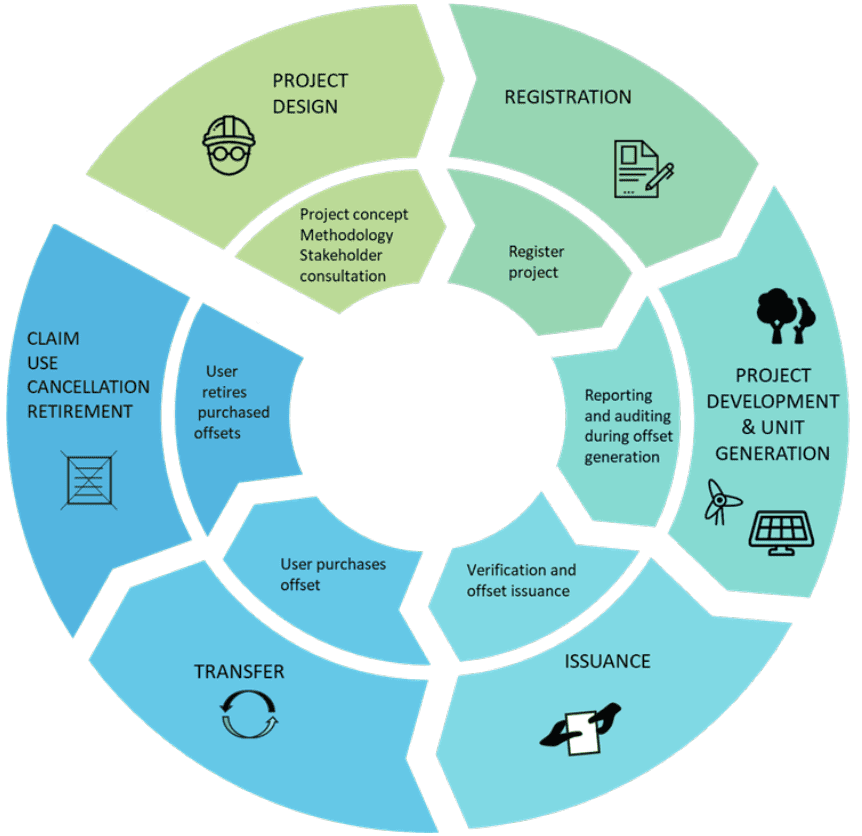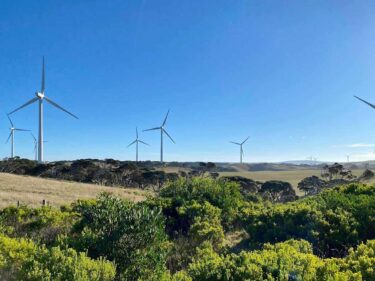In August 2022 the Climate Change Authority released its ‘Review of International Offsets’, a report on the international carbon market. In summary, the report calls for the development of a ‘National Carbon Market Strategy’ that would guide Australia in capitalising on the opportunities that exist in the carbon market globally considering Paris Agreement targets, and for Australia to accelerate ambition on emissions reduction.
The report puts forward 18 recommendations, here we explore what the report recommendations specifically mean for organisations who are reporting to Australia’s Climate Active program and what the suggested changes are in relation to the purchase of international carbon offsets and how this may affect how they report under the scheme in the future.
Who is the Climate Change Authority and what is the International Carbon Offsets Review for?
The Climate Change Authority (CCA) was established by the Australian Government in 2011. It is the statutory agency responsible for providing expert, evidence-based advice to the government on climate change policy and progress towards targets. It conducts its own independent research and analysis on climate change and undertakes regular specifically commissioned reviews and makes recommendations on the Carbon Farming Initiative, and the National Greenhouse and Energy Reporting Scheme (NGERs).
A review into the international carbon offsets market was requested by the former Minister for Industry, Energy and Emissions Reduction in February 2022, to review of the use of international carbon offsets in Australia. The focus being on the use of international carbon offsets for carbon abatement sourced outside of Australia and used under the Climate Active program and/or the creation or use of offsets as part of the Indo-Pacific Carbon Offsets Scheme (IPCOS), in the context of the Paris Agreement.
The review and its findings are important as it has assessed how offsets, both domestically and internally produced, are currently being used within Australia, including the Government’s Climate Active Program.
Climate Change Authority calls for Climate Active to reassess the offsets allowed under its program
Climate Active (CA) is the Australian government’s carbon neutral certified program. It allows entities who have achieved certification – or those wishing to – to purchase and retire carbon offsets. These offsets to enable them to abate the emissions they cannot reduce through emissions reduction, to achieve carbon neutrality.
Currently, eligible offsets can be purchased through five recognised standards:
- Australian Carbon Credit Units (ACCUs) issued by the Clean Energy Regulator (Australian)
- Verified Emissions Reductions (VERs) issued by the Gold Standard (International)
- Verified Carbon Units (VCUs) issued by the Verra Standard (International)
- Removal Units (RMUs) issued by a Kyoto Protocol country (International)
- Certified Emissions Reductions (CERs) issued as per the rules of the Kyoto Protocol from Clean Development Mechanism projects (International)

Image Credit: Climate Change Authority. International carbon offsets review – Offsets lifecycle.
Key points for international carbon offsets
The CCA review of these standards for international carbon offsets looked at criteria such as standard governance framework; methodology certification/modification; crediting period; measurement, reporting and verification procedure and validation requirements.
Following its review, the CCA has called for a change to the types of international carbon offsets that can be retired under the CA program.
- The report suggests the use of CERs and RMUs should be phased out by 2025 as they are no longer being issued under the Paris Agreement.
- International offsets generated by the Gold Standard and Verra schemes can continue to be used. Both of these schemes demonstrated high overall quantitative integrity in the review, based on quantitative assessments.
- CCA has also recommended a five-year rolling vintage restriction be introduced by CA, which will ensure only the latest offsets are used by participants to “keep up with evolving practices and to encourage continuous improvement.” Currently, the only time restriction participants must adhere to is that offsets must be generated from 2012 onwards, which is the commencement of the second commitment period of the Kyoto Protocol. CCA suggests a five-year rolling vintage would: “assist the transition towards units that meet standards and rules of the Paris Agreement as they evolve; mitigate the risk that any problematic units could flood the market and adversely impact confidence in integrity long term; and discourage speculative ‘unit banking’, which impedes liquidity and diverts units away from the primary purpose of enabling mitigation.”
- The CCA also recommends a list of new international carbon offset schemes that should be considered in the future for possible Climate Active eligibility. These include the American Carbon Registry; Regen Registry; Climate Action Reserve; UK Woodland Carbon Code; and the Global Carbon Council.
What do the recommendations mean for Climate Active certified organisations?
Should the changes recommended by the CCA be implemented by CA, then participants will need to reconsider how they purchase offsets in the future, with changes likely to increase the costs of purchasing offsets.
This is because the CCA is recommending the cheapest offsets participants can currently purchase (such as CERs) are no longer accepted by CA. This means if participants have historically purchased these offsets, they will need to factor in the increasing costs of certification.
This comes in addition to the requirement, which CA announced last December, where all participants from 1 July 2023 must purchase a minimum of 20% Australian offsets to achieve carbon neutrality (unless their inventory is less than 1,000 tonnes).
The dynamics of both the Australian and international carbon offsets market have shifted significantly in the last few years and will become increasingly important with government policy changes and as countries and organisations commit to net zero targets.
As offsets become more costly and rare, many larger organisations are looking towards self-generating offset projects as a way to mitigate future supply and cost issues.
Learn about self-generating carbon offset projects – How to Self-Generate Carbon Credits – Building an Offsets Strategy. Carbon farming Australia – Want to start a carbon offset project to generate carbon credits? What you need to know.
Need guidance for Climate Active or carbon offsets?
The complexity of carbon offset markets and their changing landscape highlights the importance of working with trusted experts. Ndevr Environmental is well placed to assist clients through this transition period and we have helped hundreds of organisations achieve carbon neutrality, Climate Active Certification and implement emissions reduction pans and net zero targets.
Guiding our clients to navigate the at times complex certification process, our experts are able to ensure clients not only match their offset purchase to their budget and desired co-benefits, but purchase offsets of the highest integrity to ensure they are not impacted by any future changes to the CA program.
Reach out to us at environment@ndevrenvironmental.com.au or call 03 7035 1740. If you need advice on a wider climate change risk or sustainability strategy, we can help with that too.


